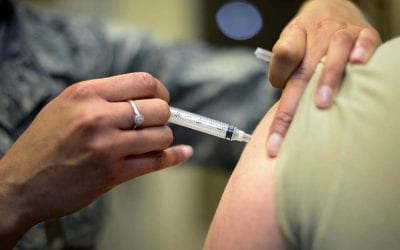Many travelers consider their laptop safe, as long as they have great antivirus, antispyware, and firewall software installed, and up-to-date. That’s merely a good start.
It does nothing to prevent their laptop from being stolen or protect their personal and business data. It does nothing to protect that data if their laptop is inspected by a government agent at the border when entering a country.
The basic fact is that laptop theft is soaring.
• According to Gartner, one laptop is stolen every 53 seconds.
• According to the FBI, 97 percent of stolen laptops and computers are never recovered.
• Nearly 12,000 laptops are lost or go missing at US airports every week.
• According to documents obtained by the American Civil Liberties Union, as of June 2010, US Homeland Security averaged more than 3,600 border searches of electronic devices each year as people entered the US, with almost half belonging to US citizens. The inspections continue to this day.
Here are my top ten security tips for travelers with laptops:
1. Keep your operating system up to date. Make sure you download and install all security updates for your operating system and other software. They are critical to keeping any computer safe.
2. Don’t save passwords in your browser and other programs on your laptop for easy use. Those passwords are easily accessed if your computer is stolen.
3. Ensure you have an up-to-date backup of your data at all times. Back up your laptop to an external hard drive before leaving on a trip. While traveling, use a cloud-based backup system to capture and backup new and updated files.
4. Never, ever, let your laptop out of your personal, physical control. Don’t let cabbies stow it in the trunk, or bell hops take it to your room or porters handle it in airports and stations.
More than a few laptops are lost at airport eateries and coffee shops when travelers leave their laptops on the table to get refills, napkins, or another doughnut. It might be a “pain in the neck,” but take it with you. If you go to the lavatory at the airport, take your laptop and your belongings with you there.
5. While flying, when not using your laptop, stow it at your feet, or in the overhead bin directly above your seat or in front of you. If in the overhead bin, put it in a secured bag. I recommend PacSafe bag protectors. It stopped a passenger from getting into my bag while I slept on a transatlantic flight a few years ago.
6. Use your laptop’s disk access password protection, and use a “strong password,” so if your laptop is stolen the thief won’t have access to your data.
7. Most people have more personal information on their laptop than they realize, details which could make identity theft very easy. Use whole-disk encryption to protect all the data on your laptop, not just key files. Then you won’t have to worry about finding and cleaning/deleting files which may be hiding information. While there are many products which can do the job, I recommend PGP Whole Disk Encryption, for its ease of use and quality of protection.
8. In your hotel room, secure your computer in your room safe. If it’s too small to fit your laptop, and the hotel’s safe is inconvenient or unavailable, consider two other options to secure your laptop and other valuable gear. Secure your laptop in a bag to a pipe or other immovable object in your room with a PacSafe protector or similar product. Consider a “motion detection alarm security lock,” like the Okion LKM3, which sounds a loud alarm if someone tries to move your laptop.
9. In case of theft, have your laptop’s serial number safely recorded for the police. Consider using laptop tracking software, such as Absolute Software’s LoJack for Laptops. If your laptop is stolen, tracking software can help the police locate and recover it through your tracking company. While this type of software works, not all protected laptops are recovered by its use.
10. At the border when entering the US and other countries, border agents may decide to inspect your computer and require you to give them your passwords. If you refuse you may be detained, and your laptop held for further investigation. Some countries, the United Kingdom, Singapore, and Malaysia, for example, passed laws requiring travelers to reveal the passwords and codes to government agents. To say the least, there are no assurances the data won’t then be misused.
I’ve found the best method to combat any kind of data loss is to have virtually no data on my laptop while traveling. I retrieve needed documents, plus handle all email and browsing remotely.
You can connect to your office/home computer using your laptop as a dumb terminal on the Internet, via a secure VPN connection. I use GoToMyPC.com to accomplish this, but there are many other products available. It’s secure, fast, and easy to use.
Border agents and thieves will have no data to examine on my computer, because it was never there, and I will still have all my data and email when returning home.
After many years working in corporate America as a chemical engineer, executive and eventually CFO of a multinational manufacturer, Ned founded a tech consulting company and later restarted NSL Photography, his photography business. Before entering the corporate world, Ned worked as a Public Health Engineer for the Philadelphia Department of Public Health. As a well known corporate, travel and wildlife photographer, Ned travels the world writing about travel and photography, as well as running photography workshops, seminars and photowalks. Visit Ned’s Photography Blog and Galleries.


